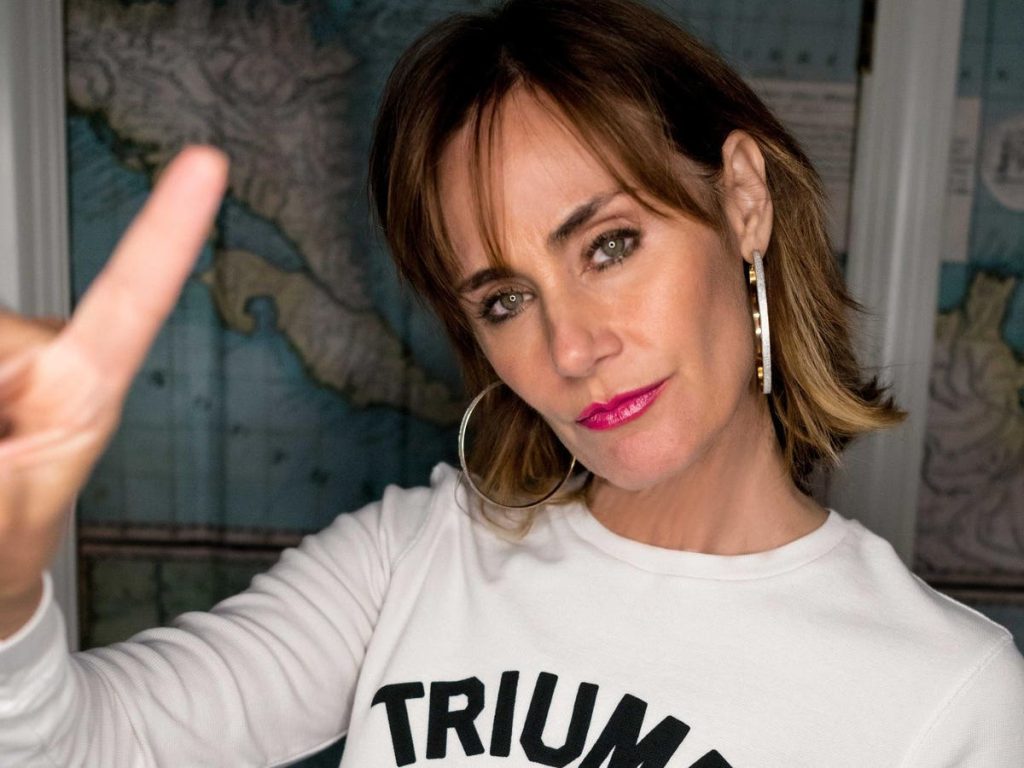In a perfect world, careers and life would become less stressful and anxiety-free as we age. That’s far from the truth, though. There’s still a heavy focus on Millenials and Gen Z coping with career burnout at young ages. But what about older women?
Women have fought hard for their careers, and as they age, there’s still the mindset of having to prove oneself. There’s added stress of ageism and menopause, which hinders some women’s self-confidence. However, there are personal development tricks and mindset hacks to keep positivity prominent; it’s less about someone saving you and more about being self-aware and focusing on the value you provide.
“I was the one saving myself more than anything or anyone else,” Diane Farr, Hollywood actress currently co-starring on CBS’ Fire Country, shares about her career and motherhood in her forties. “So once I understood what I was capable of, the next wild idea that I wanted to do was within my reach because I knew what my assets were, I knew what my worth was.”
An AARP study found that age discrimination was the top reason older workers faced a lack of confidence. This discrimination has taken an emotional toll on women: the number of women in their 40s and 50s taking antidepressants surpasses every other age group. Many women are sandwiched between an aging relative and their children. In a survey from Carrot Fertility, a fertility-based healthcare company, women rank their 50s as the most challenging decade in the workplace.
Now in her 50s, as a working actress with a career spanning over three decades, Farr can relate to work environment pressures. She started modeling at 12, and in her 20s and most of her 30s, she focused on her work. She wrote for Cosmopolitan and was a cohost for 200 episodes of the advice program Loveline on MTV. Additionally, during this time, Farr became frustrated with how the media portrayed single women and how they spoke about them. She published her first book The Girl Code, which focused on the secret language of single women.
Farr established herself within Hollywood, landing major roles on Rescue Me, Californication and Numb3rs. She married her ex-husband at 37 years old, had her first child at 38 years old, and by the time she turned 39, she had a set of identical twins. At the time, she worked on an hour-long drama series, which wasn’t a suitable shooting schedule for marriage or raising three kids under three in her early forties.
“I knew I couldn’t stay on that show,” she states. “Quitting a TV show is like quitting a cult. They look at you like you are insane. I kept looking at it like the point of this when I started wasn’t to get a job. The point of this was to work at different jobs as an artist. So I think if I leave, I will be able to get another one. I left that show because I didn’t want my kids entirely raised by the nanny. And then I figured out a window between the first nap and the second nap, with a babysitter there, that I could go and sit in my car mostly and write my second book.”
As a coping mechanism for her new lifestyle, she started writing as a form of mental health after her children were born. Farr’s second book launched in May 2011 as a comical memoir of her path to interracial marriage. She devised a personal rule for herself: While her kids were young, she would only work on Los Angeles-based comedy television shows. The mom of three strongly believes in personal development at all stages of life, especially when she thought that leaving the show to raise her kids would ultimately end the career she worked so hard for in her 20s and early 30s.
Reflecting on her journey, she discovered that women can continue to achieve their goals.
Save yourself
From childhood, young girls are told and shown that one day someone will ride up on a white horse and save them. Unfortunately, that’s not always the case. You are your own hero. Farr experienced a paradigm shift after her children were born.
“The idea of raising someone and being entirely responsible for someone made me stop looking outside myself for someone to raise me,” Farr shares. “I think we all have these little holes in our hearts, and we’re still looking for someone to come in and lead us. There are still moments when there’s a pocket of need, and I want someone else to do it for me. So when I had to do everything for a tiny human, that desire to find someone to mommy or daddy me immediately started to shrink. Then I had to relook at all my relationships because so many of them were based on trying to find my worth outside myself.”
Deal with the fear
Farr starts the mornings by writing down five things she’s afraid of, big or small, and places them in a box so they live there instead of her carrying them around all day. Then, at the end of the day, she writes down her five wins to balance out and put what she’s accomplishing in perspective. In doing so, she has created her asset list, the value she brings to each project.
Set boundaries
It’s easy to give in to the shiny object syndrome. But if you don’t establish your boundaries, you’ll spread your energy and time too thin; that leads to unfinished projects and empty promises, mainly to yourself. Learning to say “no” to opportunities is complex; however, regret is permanent.
“Sometimes it’s really hard to stand up for what you know is right,” Farr concludes. “At the moment, I’m trying to stay home for the entire summer with my kids. So the first thing that was offered to me was a play at the Mark Taper Forum. I would love to play at the Taper. It was such a dream. But you can’t take one week off if it’s a four-week run. So I just gracefully had to say no. And the funny thing was, the next day, that feeling in my body was relief.”
Read the full article here










